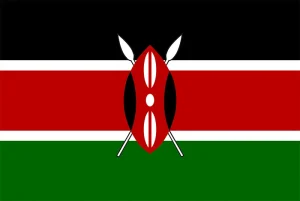kenya-used-car-import-rules-and-regulations

RESTRICTION NUMBER OF YEARS: MAX 8 YRS OLD
(2016 AND ABOVE)
PORTS: MOMBASA
SHIPPING TIME: 25-35 DAYS
SHIPPING LINE: K-LINE
SHIPPING SCHEDULE: MONTHLY
INSPECTION REQUIREMENT: QISJ/JEVIC
- Import Duty: This is levied at 25% of the Dutiable Value.
- Excise Duty: Amounting to 20% of the combined sum of Customs Value and Import Duty.
- Value-Added Tax (VAT): Charged at 16% of the total of Customs Value, Import Duty, and Excise Duty.
- Import Declaration Fee (IDF): Either a fixed fee of $5000 or 2.25% of the CIF (Cost, Insurance, and Freight) value, whichever is higher, is applicable. The IDF must be paid before the application process.
- Railway Development Levy: This levy is imposed at 1.5% of the Customs Value.
Please note that these rates and fees are provided based on the information given and may vary depending on the specific country’s import regulations and policies. It is advisable to consult with the relevant customs authorities or a customs broker for the most up-to-date and accurate information related to import duties and fees.
When importing used Japanese vehicles into Kenya, it’s important to adhere to the following regulations:
- Right-Hand Drive Requirement: Only vehicles with right-hand drive configurations are permitted for import from Japan.
- Special Purpose Vehicles: Kenya allows the importation of specialized vehicles like fire engines, ambulances, and large construction vehicles.
- Age Compatibility: The used Japanese vehicle’s registration date and its year of manufacture should not differ by more than one year.
- Roadworthiness Inspection: Authorized organizations, such as JEVIC (Japan Export Vehicle Inspection Center) or QISJ (Quality Inspection Services Japan), conduct inspections to determine the roadworthiness of imported vehicles.
These regulations are essential to follow to ensure a smooth and compliant importation process for used Japanese vehicles in Kenya. Staying informed about any updates in import rules and collaborating with experienced importers or agencies can be advantageous.
- Original Passport: Your original passport is necessary for identification and verification purposes.
- Original Bill of Lading: The original Bill of Lading serves as proof of shipment and is a crucial document in the importation process.
- Original Commercial Invoice: An original copy of the commercial invoice is required to detail the transaction and pricing information.
- Pre-inspection Certificate: A certificate obtained through pre-inspection processes, as per importation regulations.
- KRA PIN Card: Your Kenya Revenue Authority (KRA) Personal Identification Number (PIN) card is essential for tax-related documentation.
- Vehicle Logbook: The vehicle logbook is a critical document, and the Kenya Revenue Authority (KRA) will not accept substitutes for a foreign logbook. If necessary, translation into English can be done by the Kenya High Commission or consulate.